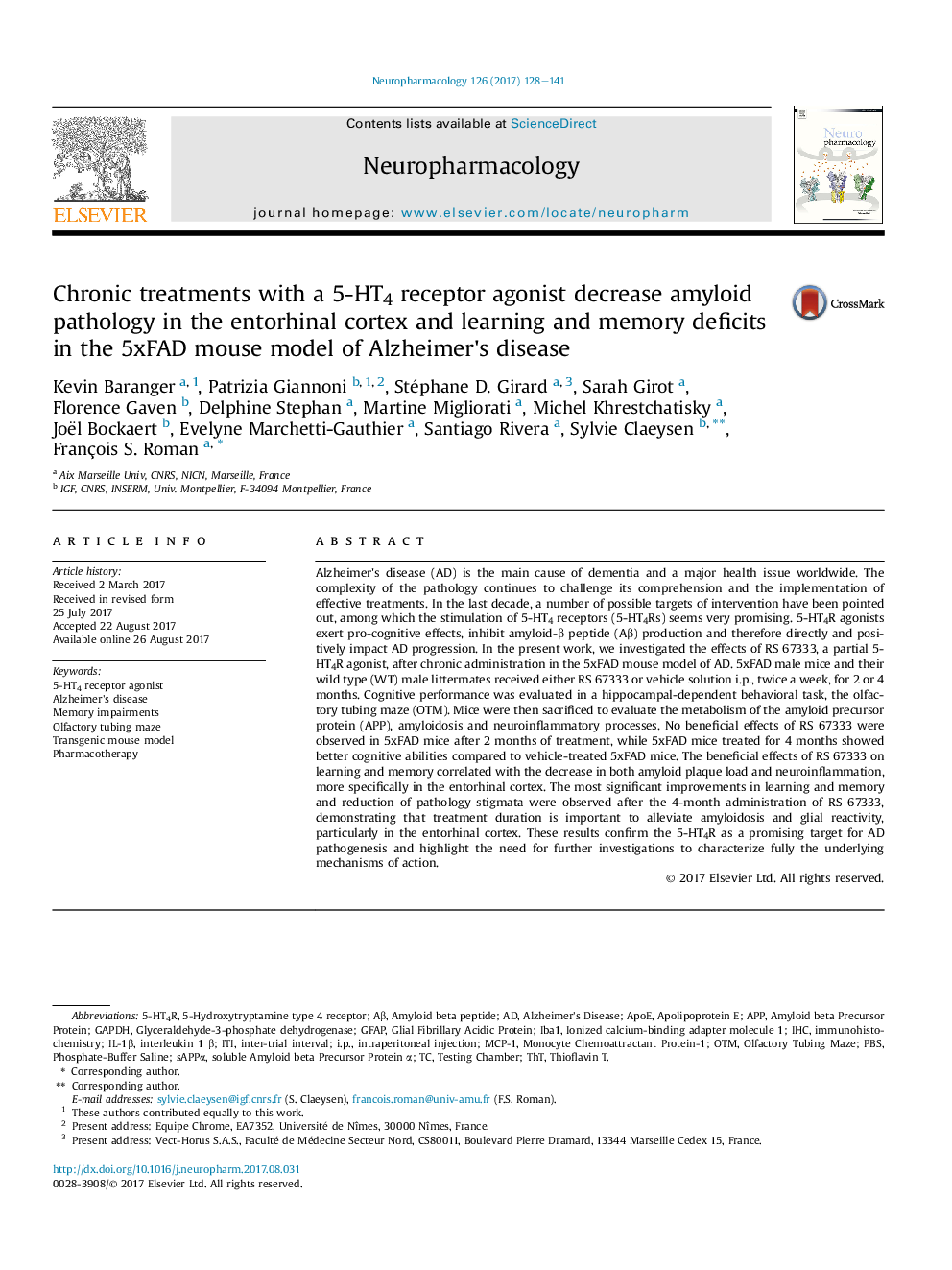| Article ID | Journal | Published Year | Pages | File Type |
|---|---|---|---|---|
| 5548711 | Neuropharmacology | 2017 | 14 Pages |
â¢A 5-HT4R agonist, RS 67333, alleviates AD pathology in transgenic mice.â¢Chronic treatment with RS 67333 decreases amyloid plaque load and glial reactivity.â¢RS 67333 improves learning and memory in 5xFAD mice after 4-month treatment.â¢These data confirm the interest in 5-HT4R agonists as a potential treatment for AD.
Alzheimer's disease (AD) is the main cause of dementia and a major health issue worldwide. The complexity of the pathology continues to challenge its comprehension and the implementation of effective treatments. In the last decade, a number of possible targets of intervention have been pointed out, among which the stimulation of 5-HT4 receptors (5-HT4Rs) seems very promising. 5-HT4R agonists exert pro-cognitive effects, inhibit amyloid-β peptide (Aβ) production and therefore directly and positively impact AD progression. In the present work, we investigated the effects of RS 67333, a partial 5-HT4R agonist, after chronic administration in the 5xFAD mouse model of AD. 5xFAD male mice and their wild type (WT) male littermates received either RS 67333 or vehicle solution i.p., twice a week, for 2 or 4 months. Cognitive performance was evaluated in a hippocampal-dependent behavioral task, the olfactory tubing maze (OTM). Mice were then sacrificed to evaluate the metabolism of the amyloid precursor protein (APP), amyloidosis and neuroinflammatory processes. No beneficial effects of RS 67333 were observed in 5xFAD mice after 2 months of treatment, while 5xFAD mice treated for 4 months showed better cognitive abilities compared to vehicle-treated 5xFAD mice. The beneficial effects of RS 67333 on learning and memory correlated with the decrease in both amyloid plaque load and neuroinflammation, more specifically in the entorhinal cortex. The most significant improvements in learning and memory and reduction of pathology stigmata were observed after the 4-month administration of RS 67333, demonstrating that treatment duration is important to alleviate amyloidosis and glial reactivity, particularly in the entorhinal cortex. These results confirm the 5-HT4R as a promising target for AD pathogenesis and highlight the need for further investigations to characterize fully the underlying mechanisms of action.
